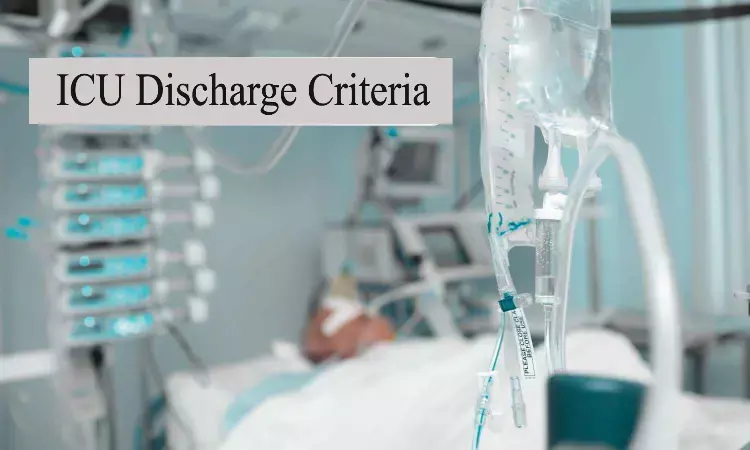- Home
- Medical news & Guidelines
- Anesthesiology
- Cardiology and CTVS
- Critical Care
- Dentistry
- Dermatology
- Diabetes and Endocrinology
- ENT
- Gastroenterology
- Medicine
- Nephrology
- Neurology
- Obstretics-Gynaecology
- Oncology
- Ophthalmology
- Orthopaedics
- Pediatrics-Neonatology
- Psychiatry
- Pulmonology
- Radiology
- Surgery
- Urology
- Laboratory Medicine
- Diet
- Nursing
- Paramedical
- Physiotherapy
- Health news
- Fact Check
- Bone Health Fact Check
- Brain Health Fact Check
- Cancer Related Fact Check
- Child Care Fact Check
- Dental and oral health fact check
- Diabetes and metabolic health fact check
- Diet and Nutrition Fact Check
- Eye and ENT Care Fact Check
- Fitness fact check
- Gut health fact check
- Heart health fact check
- Kidney health fact check
- Medical education fact check
- Men's health fact check
- Respiratory fact check
- Skin and hair care fact check
- Vaccine and Immunization fact check
- Women's health fact check
- AYUSH
- State News
- Andaman and Nicobar Islands
- Andhra Pradesh
- Arunachal Pradesh
- Assam
- Bihar
- Chandigarh
- Chattisgarh
- Dadra and Nagar Haveli
- Daman and Diu
- Delhi
- Goa
- Gujarat
- Haryana
- Himachal Pradesh
- Jammu & Kashmir
- Jharkhand
- Karnataka
- Kerala
- Ladakh
- Lakshadweep
- Madhya Pradesh
- Maharashtra
- Manipur
- Meghalaya
- Mizoram
- Nagaland
- Odisha
- Puducherry
- Punjab
- Rajasthan
- Sikkim
- Tamil Nadu
- Telangana
- Tripura
- Uttar Pradesh
- Uttrakhand
- West Bengal
- Medical Education
- Industry
Discharge Criteria for ICU Patients: What Do the New Guidelines Say?

New Delhi: The newly released guidelines for admission and discharge from the Intensive Care Unit (ICU) have specified the conditions that an ICU patient needs to meet in order to be discharged from the hospital.
As per the new guidelines, which were compiled by a total number of 24 experts and released by the Directorate General of Health Services (DGHS) operative under the Union Health Ministry, to be discharged from the ICU, the patient's physiological aberrations must be returned to near normal or baseline status.
Apart from this, the reasonable resolution and stability of the acute illness that necessitated ICU admission is also required. Patients can also be discharged if the patient or his/her family agrees for ICU discharge for a treatment-limiting decision or palliative care.
If there is a lack of benefit from aggressive care, then also the patient can be discharged. However, it should be a medical decision and not an obligating family agreement and as far as possible it should not be based on economic constraints.
Patients can also be discharged from the ICU for infection control reasons. However, this can be done only when appropriate care of the given patient in a non-ICU location is ensured.
Another discharge criteria, as mentioned in the new guidelines is rationing (i.e., prioritisation in the face of a resource crunch). The guidelines clarified that this reason can be only applied if there is an explicit and transparent written rationing policy that should be fair, consistent and reasonable.
ICU Discharge Criteria:
Return of physiological aberrations to near normal or baseline status
Reasonable resolution and stability of the acute illness that necessitated ICU admission
Patient/family agrees for ICU discharge for a treatment-limiting decision or palliative care.
Based on lack of benefit from aggressive care (should be a medical decision, not obligating family agreement and as far as possible should not be based on economic constraints).
For infection control reasons with ensuring appropriate care of the given patient in a non ICU location
Rationing (i.e., prioritisation in the face of a resource crunch). In this event there should be an explicit and transparent written rationing policy that should be fair, consistent and reasonable.
The Government guidelines for admission of patients to ICU have been issued more than 7 years after the Supreme Court took cognisance of the issue. Medical Dialogues had reported back in 2016 that taking into account the stream of medical negligence cases being filed against the medical professionals and hospital, the Supreme Court bench had asked the Central Government, and the erstwhile Medical Council of India (MCI), which has now been replaced by the National Medical Commission (NMC), to answer whether any guidelines are prescribed for private hospitals on providing care to patients in the Intensive Care Unit (ICU) and Critical Care Unit (CCU).
M.A in English Barsha completed her Master's in English from the University of Burdwan, West Bengal in 2018. Having a knack for Journalism she joined Medical Dialogues back in 2020. She mainly covers news about medico legal cases, NMC/DCI updates, medical education issues including the latest updates about medical and dental colleges in India. She can be contacted at editorial@medicaldialogues.in.


